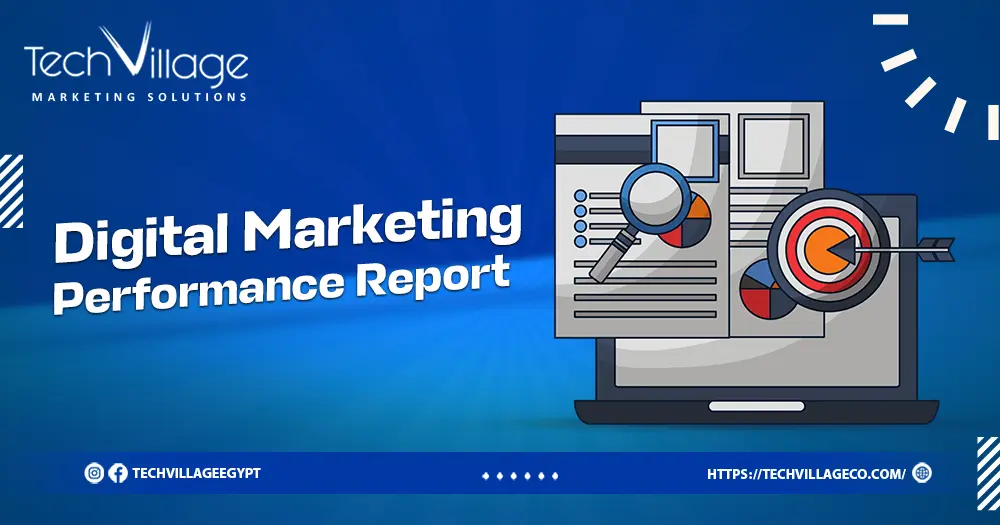digital marketing performance report has emerged as a cornerstone for companies striving to reach and engage their target audiences effectively. Amidst this digital revolution, the need for informed decision-making has never been greater. Enter the digital marketing performance report: a comprehensive analysis that illuminates the efficacy of digital marketing strategies, channels, and campaigns.
By leveraging key metrics and insights, organizations can optimize their marketing efforts, enhance return on investment, and stay ahead in the ever-evolving digital sphere. Join us as we delve into the realm of digital marketing performance reporting, uncovering its significance and unveiling the strategies that drive success in today’s competitive marketplace.
Table of Contents
ToggleWhat are digital marketing performance reports?
digital marketing performance report are comprehensive analyses that provide insights into the effectiveness and impact of various digital marketing activities and campaigns. digital marketing performance report typically encompass a range of key performance indicators (KPIs) and metrics to evaluate the performance of digital marketing strategies across different channels and platforms Key components of digital marketing performance report often include:
- Website Traffic and Engagement Metrics: Metrics such as website visits, page views, bounce rate, time on site, and conversion rates provide insights into how effectively the website is attracting and engaging visitors.
- Social Media Metrics: Analysis of social media platforms may include metrics like follower growth, engagement (likes, shares, comments), reach, impressions, and click-through rates (CTR).
- Email Marketing Metrics: For email campaigns, metrics such as open rates, click-through rates, conversion rates, and unsubscribe rates are typically tracked to gauge the effectiveness of email marketing efforts.
- Search Engine Optimization (SEO) Metrics: SEO performance metrics may include organic search traffic, keyword rankings, backlink profile, domain authority, and search engine visibility.
- Advertising Performance Metrics: For paid advertising campaigns, metrics such as ad impressions, click-through rates, conversion rates, cost per click (CPC), cost per acquisition (CPA), return on ad spend (ROAS), and overall campaign ROI are analyzed.
- Content Performance Metrics: Analysis of content marketing efforts may include metrics such as content consumption (downloads, views), engagement (comments, shares), and conversion rates tied to specific pieces of content.
- Lead Generation and Sales Metrics: Metrics related to lead generation and sales, such as lead conversion rates, sales conversion rates, average order value (AOV), customer acquisition cost (CAC), and customer lifetime value (CLV), provide insights into the effectiveness of digital marketing efforts in driving revenue.
Get to know: What Is Google Trends In Digital Marketing.
What to include in digital marketing reports
digital marketing performance report should include a variety of components to provide a comprehensive overview of performance and inform decision-making. Here’s a list of key elements to include:
- Executive Summary: A brief summary highlighting the key findings, successes, challenges, and recommendations.
- Objectives: digital marketing performance report should clearly define goals and objectives for the reporting period, aligned with broader business objectives.
- Key Performance Indicators (KPIs): A selection of relevant KPIs tailored to the specific goals of the campaign or strategy. This may include metrics such as website traffic, conversion rates, social media engagement, email open rates, etc.
- Performance Overview: An analysis of overall performance compared to previous periods (e.g., month-over-month, year-over-year), including trends and areas of improvement.
- Channel Performance: Breakdown of performance across different marketing channels (e.g., website, social media, email, paid advertising), including metrics specific to each channel.
- Audience Insights: Demographic and behavioral insights about the target audience, including audience growth, engagement patterns, and preferences.
- Content Analysis: Evaluation of content performance, including top-performing content, content engagement metrics, and insights into content effectiveness.
- Campaign Analysis: Assessment of individual marketing campaigns, including objectives, strategies, tactics, results, and lessons learned.
- ROI Analysis: Calculation of return on investment (ROI) for different marketing initiatives, demonstrating the effectiveness of marketing spend.
- Competitive Analysis: Comparison of performance against competitors, including market share, brand visibility, and other relevant metrics.
Read also: Best Digital Marketing Agency In Cairo.
When do you need to make one?
digital marketing performance report are typically created on a regular basis to track and evaluate the performance of ongoing marketing initiatives. The frequency of creating reports can vary depending on factors such as the nature of the business.
The duration and scale of marketing campaigns, and the availability of resources for analysis. Here are some common scenarios when you may need to create a digital marketing performance report:
1-Monthly Reporting: Monthly reports are often prepared to assess performance over a specific month. This frequency allows for regular monitoring of key metrics and enables timely adjustments to marketing strategies.
2-Quarterly Reporting: digital marketing performance report provides a broader view of performance over a three-month period. This timeframe allows for more in-depth analysis of trends and patterns while still enabling timely adjustments to strategies.
3-Campaign Reporting: digital marketing performance report may be generated at the conclusion of specific marketing campaigns or initiatives to evaluate their success and identify lessons learned for future campaigns.
4-Yearly Reporting: Annual reports summarize performance over the course of a year, providing a comprehensive overview of marketing efforts and outcomes. Yearly reports may also include strategic insights and recommendations for the upcoming year.
5-Ad Hoc Reporting: In addition to scheduled reports, ad hoc reports may be created in response to specific events, requests from stakeholders, or the need for deeper analysis on particular topics.
Get to know: What Is Google Trends In Digital Marketing.
Common challenges of marketing reporting
According to tech village, the common challenges of digital marketing performance report include:
- Data Fragmentation: Gathering data from various sources and platforms can be challenging, leading to fragmented data sets that are difficult to consolidate and analyze cohesively.
- Data Accuracy: Ensuring the accuracy and reliability of data is often a challenge, especially when dealing with discrepancies between different reporting tools or incomplete data tracking.
- Interpretation Complexity: Making sense of complex data sets and metrics can be challenging, particularly for non-technical stakeholders who may struggle to interpret and derive actionable insights from the data.
- Time Constraints: Generating digital marketing performance report on a regular basis requires significant time and resources, which can be challenging for marketing teams already stretched thin with day-to-day tasks and responsibilities.
- Lack of Standardization: Inconsistent reporting formats and metrics across different channels or departments can make it difficult to compare performance and derive meaningful insights.
- Aligning Metrics with Business Goals: Ensuring that the metrics tracked and reported align closely with broader business objectives can be challenging, as it requires a deep understanding of both marketing strategies and organizational goals.
- Keeping Up with Technology Changes: The rapid pace of technological change in the marketing landscape can present challenges in terms of staying up-to-date with new tools, platforms, and methodologies for tracking and reporting marketing performance.
- Communication and Collaboration: Effective communication and collaboration between marketing teams, data analysts, and other stakeholders are essential for producing meaningful reports and driving action based on insights.
- Reporting Tools Limitations: Utilizing reporting tools with limited capabilities or customization options can hinder the ability to generate insightful and visually engaging reports that meet the needs of stakeholders.
- Measuring ROI: Determining the return on investment (ROI) of marketing efforts can be challenging, especially when attributing conversions and sales to specific marketing channels or campaigns accurately.
Conclusion
In conclusion, the digital marketing performance report stands as a vital tool in the arsenal of modern businesses navigating the complexities of the digital landscape. By harnessing the power of data analytics, organizations can gain invaluable insights into the effectiveness of their marketing initiatives, enabling them to refine strategies, allocate resources wisely, and ultimately achieve their business objectives.
As technology continues to evolve and consumer behaviors shift, the importance of data-driven decision-making cannot be overstated. Embracing the digital marketing performance report empowers companies to adapt swiftly, stay ahead of the curve, and thrive in an ever-changing marketplace. With a commitment to continuous improvement and a keen eye on key metrics, businesses can unlock the full potential of their digital marketing efforts.
FAQ
Why do marketing report templates matter so much?
the use of marketing report templates enhances the quality, accuracy, and usefulness of marketing reporting efforts, ultimately empowering businesses to optimize their marketing strategies and drive greater success in an ever-evolving marketplace.
How to Create a Digital Marketing Performance Report?
present findings in a clear, concise, and visually engaging manner, highlighting key insights, recommendations, and next steps for optimizing future marketing efforts. By following these steps, businesses can create digital marketing performance reports that drive informed decision-making and contribute to overall marketing success.

 AR
AR




